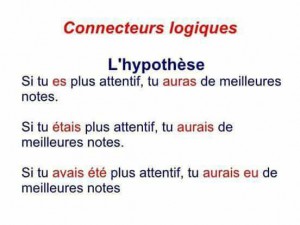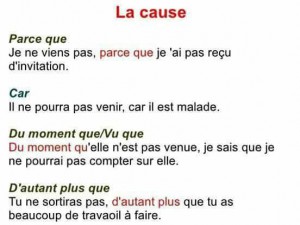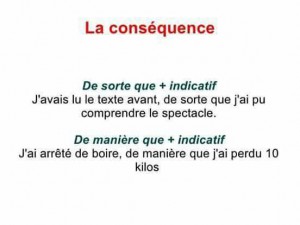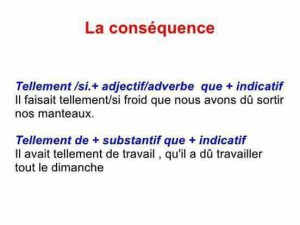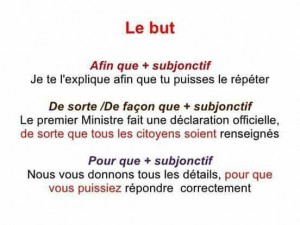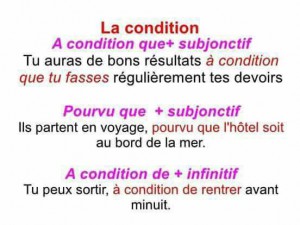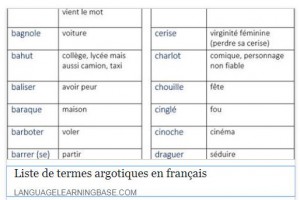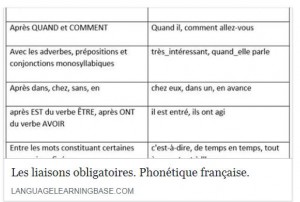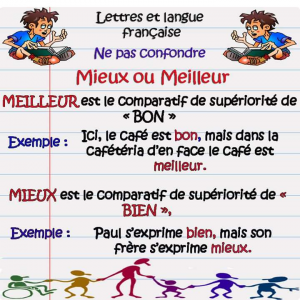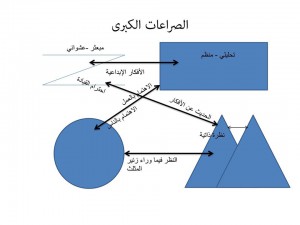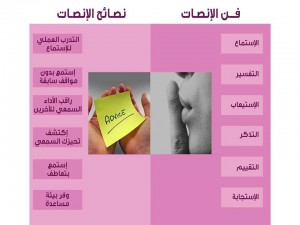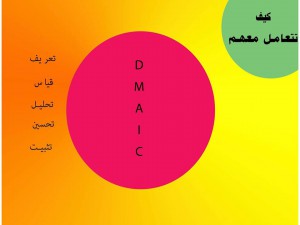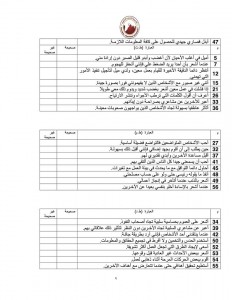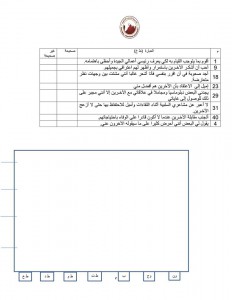Quantity expressions
https://www.facebook.com/FrenchPage/?hc_ref=ART09rt8VvOiQ4upz1SrQJGg7HZcTAd7L6w8KkfJGpXjqfysPzscNIbgpG-WVNBO7dA&fref=nf
**********************************
Logical Connectors
https://www.facebook.com/Club-de-fran%C3%A7ais-FLE–208984245836644/?hc_ref=ARTyROfmeKox-5kW6DOJmi4oxaeFWL_2k2tRhMy8IUuvQykE1d7TvK5fmesdO6vKPSM
******************************
https://www.facebook.com/Atelier-de-langue-et-de-culture-francaises-233692253341035/?hc_ref=ARTe9Wu3-xdP9Rk-55HWYvzY6rLqNVqDfdewH9QiY5YFAs_Z4xZaiv5icCmc2xeQa14&fref=nf
************************************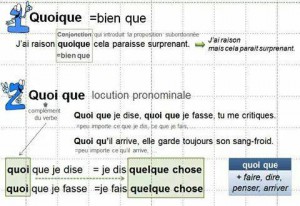
https://www.facebook.com/Atelier-de-langue-et-de-culture-francaises-233692253341035/?hc_ref=ARQCJnarvSYME98drgC_mUmMYvUtS4JmbCERNxa4Z4XhLjBctYu_Y-t1p2P2VhMs12k&fref=nf
********************************
https://www.facebook.com/%D8%AA%D8%B7%D9%88%D9%8A%D8%B1-%D8%A3%D8%AF%D8%A7%D8%A1-%D9%85%D8%B9%D9%84%D9%85%D9%8A-%D8%A7%D9%84%D9%84%D8%BA%D8%A9-%D8%A7%D9%84%D9%81%D8%B1%D9%86%D8%B3%D9%8A%D8%A9-238356943247562/
************************************
List of termes terms in French
http://languagelearningbase.com/86954/liste-de-termes-argotiques-en-francais
http://www.espacefrancais.com/difference-entre-pas-et-point/
Quelle est la différence entre « pas » et « point » ?
http://www.espacefrancais.com/difference-entre-pas-et-point/
« Pas » et « point » sont deux éléments de la négation, en
corrélation avec « ne ». « Pas » exprime moins fortement la négation que « point ». « Pas » est aussi préférable avant les noms de nombre… [Lire la suite sur le site]
*********************************
https://www.facebook.com/FrenchPage/?hc_ref=ARTsv0vHrW4AA0Ns2CObQpVlO6F41X69VXkDkY35Yoi-T6NGY5pyj3m0D5V4YDwVcqQ&fref=nf
******************************
https://www.facebook.com/FrenchPage/?hc_ref=ARQbHmq0DwcbA06ytUpzaWhWtwCjUThO17TblmnqE82GU7BedJ2Jwu056Pg9ywlNihY
**********************************
The expression of opinion.
https://www.facebook.com/Club-de-fran%C3%A7ais-FLE–208984245836644/?hc_ref=ARQQQJqIvGXCNy3MhGEM9n1PhTFLjo3_O3jOIm_CwUOEq09a1ct7jYQwX5M5iKoz2RA&fref=nf
*******************************

https://www.facebook.com/FrenchPage/?hc_ref=ARRGx2dIwhIpmGFWbLNlMQAX1yUG5TY5n7tUnQ7uOaiyozaTwreyD7HOW4vZnRGGZ5I&fref=nf
**************************************
The expression of opposition and concession
http://languagelearningbase.com/18665/lexpression-de-lopposition-et-de-la-concession
https://www.facebook.com/Atelier-de-langue-et-de-culture-francaises-233692253341035/?hc_ref=ARTwbSjGJ3UkdnHBMnYj56ZwkTv9nOTcWRQ5U1340hssO4ztif468Q3b0JMtuwVsIyA&fref=nf
********************************
http://languagelearningbase.com/85367/participe-present-gerondif-differences-ladjectif-verbal
Participe Présent et Gérondif – Différences. L’Adjectif Verbal.
******************************
https://www.facebook.com/FrenchPage/?hc_ref=ARSj3ZvIDDHq6okWcNbDJRDmeNxXtIYgDSgGpIdbw81bq_7V9XJt4irXZB_WDNikxfU&fref=nf
***************************************
https://www.facebook.com/Atelier-de-langue-et-de-culture-francaises-233692253341035/?hc_ref=ARR3QtJt-Z2VOgDxN8ZGUSBAJMC0lf2UX9HG3vHPNDcEBVLqdsEhKxHo_0y77gG9gG8&fref=nf
http://languagelearningbase.com/87219/les-liaisons-obligatoires-phonetique-francaise
Mandatory Bonds. French Phonetic.
**********************************
http://hebdo.ahram.org.eg/NewsContent/1168/38/135/22578/Et-en-plus-je-parle-fran%C3%A7ais-.aspx
“L’Egypte compte 37 000 élèves francophones, répartis dans une cinquantaine d’écoles”.
****************************************
https://www.facebook.com/FrenchPage/?hc_ref=ARREEG9RhG_90u05gDAuUTmjZSpRHBWR6OCYX9EC3vKWJ3qX7xav3mWWcPwJEfbgMa4&fref=nf
Mieux ou meilleur ?
MEILLEUR est le comparatif de supériorité de « BON », exemple:
Ici, le café est bon, mais dans la cafétéria d’en face le café est meilleur.
Ici, la viande est bonne, mais dans le restaurant d’en face elle est meilleure.
Ici, les sandwichs sont bons, mais dans la cafétéria d’en face, ils sont meilleurs.
Ici, les crêpes sont bonnes, mais en Bretagne, elles sont meilleures.
Le meilleur est le superlatif de bon, exemple :
Ce restaurant est le meilleur de la ville.
MIEUX est le comparatif de supériorité de « BIEN », exemple :
Paul s’exprime bien, mais son frère s’exprime mieux.
![]() ✳Découvrez le programme de l’Institut français d’Égypte pour le mois d’avril 2017
✳Découvrez le programme de l’Institut français d’Égypte pour le mois d’avril 2017![]() ✳
✳
![]() ✳أكتشفوا برنامج #المعهد_الفرنسي_بمصر لشهرأبريل
✳أكتشفوا برنامج #المعهد_الفرنسي_بمصر لشهرأبريل![]() ✳
✳
*********************************
http://focus.tv5monde.com/fables-de-la-fontaine/?utm_source=reseaux%20sociaux&utm_medium=facebook&utm_campaign=langue%20francaise
Revisitez the fables of the fountain on the occasion of the week of the French language
******************************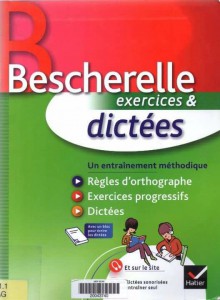
https://www.facebook.com/Club-de-fran%C3%A7ais-FLE–208984245836644/?hc_ref=ARRax0GJb5-LKixmI4CHAMkce93rTfjvHvT_y8iP-no83Jmuh3XuXNBrPHDizDaJDvc&fref=nf
Télécharger Gratuitement Bescherelle : Dictées et Exercices Pour Progresser En Français
=> Lien de Téléchargement : https://goo.gl/d5WeyM
*******************************
عرض د/ عصام عبد العظيم يوم ٢٠١٧/٣/١٤
15 spelling mistakes that many people do (and how to avoid them for good)
1. ” a ” or ” to
Confusing the ” a ” with the verb and the ” to ” of the préposition is one of the most common errors. To recognize when you are dealing with the verb, go to the imperfect when you re-read. The difference between verb and préposition will become obvious.
Example: ” he has spoken wrong and through “. using the imperfect: ” he had spoken wrong and had travers “, you know where to put the accents.
2. ” is ” or ” ER
To find out if the verb has to be conjugated or written in the infinitif, it must be replaced by another verb, such as doing or selling.
Example: ” I threw the sponge ” replaced by ” I sold the sponge ” (and not ” I sold the sponge “, so ” e “).
3. ” AI ” or ” AIS
Sometimes it is difficult to distinguish the future ” AI ” from the conditional ” ais “. to recognize time, replace by the first person of the plural (or the third of the singular), the difference will then be much more obvious.
Example: ” should I or should I have to go to my mother’s? At the first person in the plural it would give: ” we should (go to my mother) so we will write i should (and not: we will have to – future -, I will have to).
4. Double Consonant names
A little mnémotechnique trick exists: See (I see only a ” p ” to see); fall (one is only falling once, a ” T “); feeding (feeding several times a day, two ” R “) ; die (you only die once, an “R”), etc…
5. Les in “- are you taking one or two ” M “-
Frequently, remarkably, abundantly… you never know with certainty in what case the consonant repeats? A simple rule exists, however: if the syllable is preceded by sound ” a ” written with an ” e ” or an ” a “, the adverbe takes two ” m “, as for example ” obviously ” or ” elegantly “. if the syllable “-” is preceded by a sound, as in ” notablement’ “. it only takes one.
6. Difference between ” convincing ” and ” convincing “
The spell rule is: ” convincing ” is the present part of the verb to convince – therefore it is invariable – while ” convincing ” is an adjective. To find out what is in the present and not to the adverbe, here is the trick to remember: if you can put the phrase to the female (by saying ” convincing “), you have to use ” convincing ” with a ” c “.
Example: ” this man is convincing “. ” convincing the assembly, the prime minister was “.
7. cents or cents? A thousand or a thousand?
In reality, the rule is simple: numbers are invariables except ” ” and ” “. they take an ” s ” when they are multiplied and they are not followed by another figure.
Example: 80 is written ” eighty ” while 83 is written ” eighty-three “; 160 gives ” 160 ” and 400 ” is written ” four hundred “.
Exception: ” million ” as ” billion ” takes ” s ” because they are not considered a number but as a name.
8. Difference between ” supposed ” and ” supposed ” / ” more ” or ” advantage “
The rule to be retained is as follows: ” meaning ” means ” who has meaning ” or ” who has good sense ” when ” supposed ” means ” supposed “. little trick for these homonymes: when you can replace ” supposed ” By ” supposed “, you have to write ” supposed “, with a ” c “. ” more ” means ” more ” while ” advantage ” means ” gain ” or ” privilege “.
Example: ” I’m supposed to return my apartment “. ” a sane person would not threaten me “.
9. ” say ” or ” say “?
Are you writing ” I said ” or ” I said To answer this question, the simplest trick is de the sentence. Thus, this allows to detect the termination of the past and thus avoid any errors. This rule also applies to the termination of the past participant from the verbs of the third group, namely verbs in ‘ ‘, ‘-Oître ‘, ‘-‘, ‘ ‘ and certain verbs In ‘IR’.
Example: ” I have transcribed the presidential speech “. not to make mistakes, turn the sentence into ” the presidential speech has been retranscrite “. the pronunciation of the female termination will allow you to know that you need a ‘ At the end.
10. ” Gold ” or ” out
For this reason, the rule is that ” Gold ” is a conjunction of coordination and ” out ” is a préposition meaning ” outside of “. so when you can replace ” out ” by ” out of “, That’s what we wrote.
Example: ” he is out of the garden “, ” and at that time he played “.
11. The agreement of the past
The basic rule learned in all elementary classes is as follows: the past participates together with the auxiliary ‘being’ is granted in kind and in number with the subject of the verb, as in the case of “they are gone abroad”. With the auxiliary “having”, the past participates in gender and number with the direct object supplement (Doc) if it is placed before. If he is placed afterwards, then the past will remain invariable.
For example, ” I ate strawberries ” and ” strawberries i ate “. there are obviously exceptions and that is why the French fish so much on this rule.
12. The rule of the past “done”
In this case, the rule is as follows: when the “done” is followed by an infinitif, it is always invariable.
Example: “my players, I made them rest”.
13. The rule of the past participe followed by an infinitif
When a past participant, employed with an, is followed by an infinitif, it does not agree with the doc even if it is placed before.
Example: “the play I saw playing was very good”.
Exception: if the cod is the author of the action action, the participe is granted. Example: “the children I saw having fun in the street are those of my baker”.
14. Other exceptions from the past
There are many other rules, but if it is to be retained, it is that the past does not agree with the supplement before it indicates a price, value, duration or weight.
Example: “the two hours you spent working with you allowed you to go deeper”.
15. Spelling rule for colour adjectives
Why do they write ” Blue dresses ” but ” Brown skirts The rule is as follows: as a rule, the adjective of colour is granted. On the other hand, if a name is used to denote a colour, like brown, for example, it is invariable. There are five notable exceptions: Pink, Purple, Purple, Scarlet and wild. So we write ” Brown skirts ” and ” Pink or purple skirts “.
Examples: ” he put his pretty brown shoes ” but ” she has beautiful emerald eyes “.
Finally, it should be noted that the adjectives of compound colour are also invariables: ” Red bricks ” but ” bright red bricks “, ” Green apples “, but ” Apple green fabrics “, etc.







